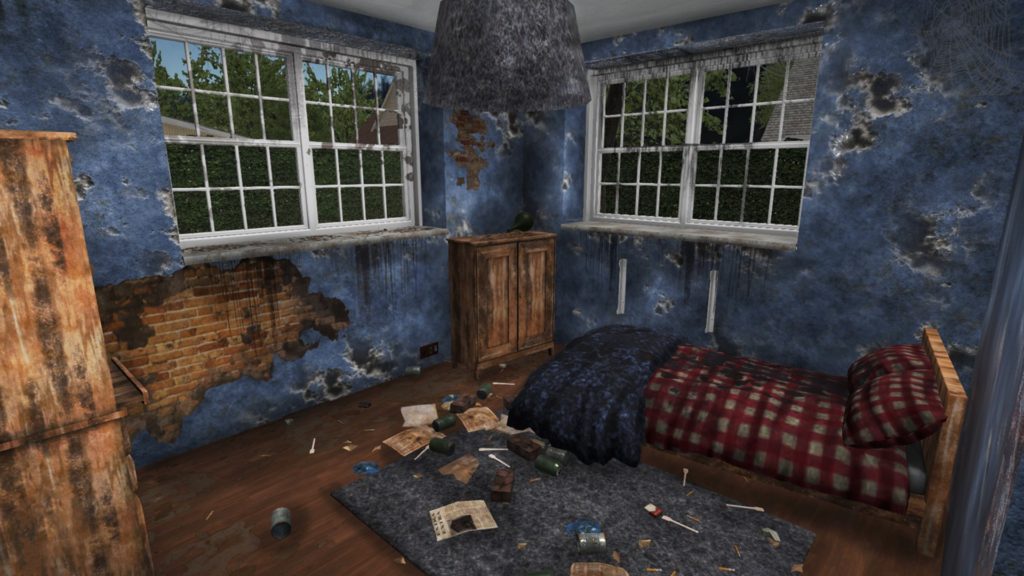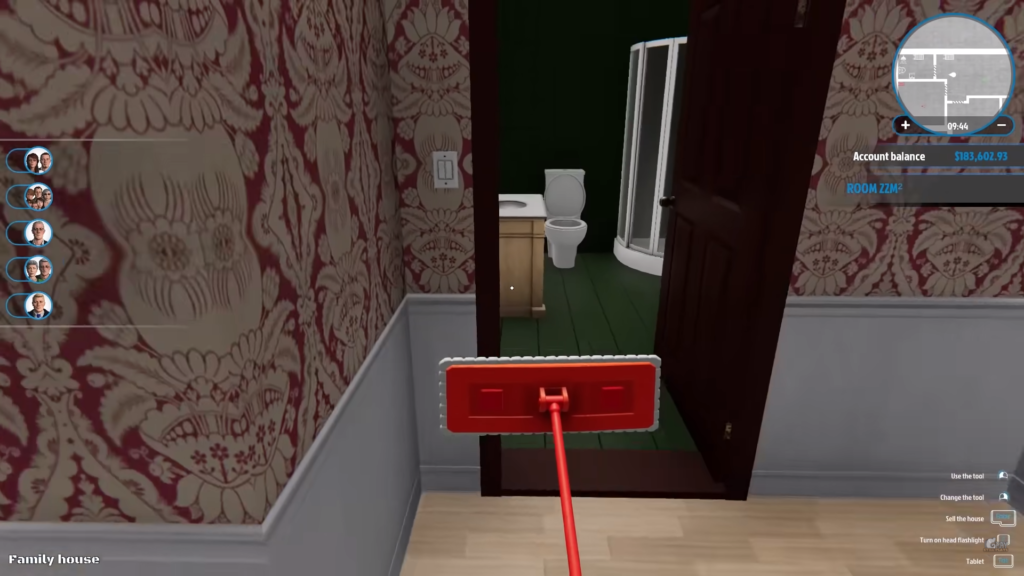In July of 2021, I caught what I thought was a cold, but turned out to be the Delta variant of COVID-19. In the middle of my favorite season, I found myself confined to my bedroom, and living the life of a hermit for a couple of weeks. (Note: No need to worry, I was almost asymptomatic and got over my fever in a few days.)
With literally nothing else to do but work my remote internship, eat, and sleep, what else was I going to do but play games? That wasn’t even a question. The real mystery was which game I would play.

I found myself playing House Flipper. Not an expansive rpg, nor an open world sandbox where I could actually go outside. I decided to play a game solely about cleaning, painting, and renovating. It’s a lot like Powerwash Simulator in style, purpose, and gameplay, and playing that game for class this week flashed me back to that idle phase of my life.
I got to thinking about why we play games like this, which dive so deep into a niche of real life labor. Why, when I could have played literally anything I wanted, did I choose a game about manual labor? Why do games like this comfort so many people that play them? Put simply, why play simulators?

I think that generally the prospect of productivity and growth and the lack of hierarchy is what attracts people to play simulators like Powerwash, House Flipper, or Bus Simulator. In my case, I think that I felt guilty about making my parents buy me food every meal and shelter me while I was sick, so in some way by feeling like I was “working” I was being useful in some way. But that’s just me!
I won’t hazard a critique of post-industrialism here, because you’re probably already thinking about it. As gamers — people who willingly get thrown into situations and given tasks — we have already been proven to be prone to the simple mechanics of challenge and growth. Gamers like having all of the tools that they need, clear instructions, and wiggle room to do things the way they want. This is fundamentally what a simulator does. For time and effort, players are basically guaranteed to be rewarded with funds meant to expand the business further, and make their tasks easier and more efficient. There is no boss telling you what to do, no terrible clients, no companies or landlords demanding money. It’s an ideal work life, really.
Maybe this is the appeal of the [X-profession] Simulator: it’s not necessarily about the work itself but the idyllic life surrounding that work, which is clean, orderly, and precise. Purchases of upgrades are easy. Finding jobs is easy. Building a wall, or driving a bus, or installing a sink is made easy. It’s the way that we are told jobs should be. In a simulator, labor is fun because it’s seamless and we choose the way that we go about it. That’s why, when I had nothing better to do, I flocked to these games to ease my stressed situation, rather than a more fantastical genre.


I really resonated with your comment about labor being fun in these games because it is seamless. Thinking alongside our reading’s idea about being “always on” and having to manage an endless stream of information from varying places, I think how these games limit those information streams to only be related to work provides a semblance of control in a pseudo “on” space. You never have to worry about diegetically missing a call from the dentist or managing some other life event while playing this game and that allows you to just focus in on one task and succeed at it. Additionally, I think our ability to walk away from this job at any time also adds to the game as a stress relieving experience. When we stop playing, this job doesn’t hold us accountable to our diegetic job and we don’t suffer consequences from devoting our time to other things. There is none of the upkeep that other “on” spaces demand and punish players for in their daily lives.
I totally agree with you that the laboring in the game makes you feel good. As a Marxist, I deeply believe that species being of human is about laboring. However, this labor is not just repetitive and meaningless labor, but creative labor. Since the creation and labor in the real life are sometimes made impossible ( for example, in your case when you are confined to your room), we seek them in a simulation game.
That you bring up Marx’s idea is really interesting, since if we believe that people should involve in creative labor rather than repeating what they are asked to do meaninglessly, then this game, in my view, would serve as an counter-example to Marx’s ideal scenario– we are still repetitively cleaning the environments to earn more money for better equipment to allow us clean more efficiently in the future. It appears that this game traps us in this endless loop of repetitive labor and makes us labor of our job. No offense but I also couldn’t help asking why people choose to become labor in games to make up for whatever happens in their real life, to gain productivity and growth. Is it because the impact of Capitalism is so deeply rooted in our subconscious that we have to become productive and useful in the society to be a good citizen?
You mention that productivity and growth are the main reasons why you think people are drawn to simulators and I think there is some merit here. Given that we live in a capitalist society that constantly asks us to give more and more, to be more and more productive, to produce to great things, it’s easy to get burnt out when you can’t perform in real life. The expectations are unreasonable in real life and we can’t meet them, so it makes sense to go to a game where the expectations are reasonable and can be accomplished, leading us to a reward that is always just out of reach in real life. I think this is a huge pull for management simulators as well and really shows its roots in our societal upbringings.